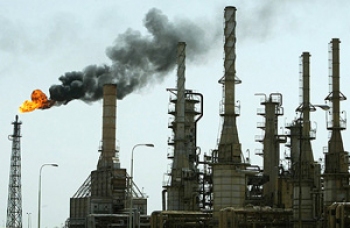
Yemen’s oil and gas resources have often been a matter of contentious, with many parties, including Yemen’s former President Ali Abdullah Saleh alleging and sustaining that the impoverished nation’s resources have been dwindling, while others, mainly political activists have beg to differ, arguing that Yemen actually sat on vast resources of both oil and gas.
While most would likely assume that officials would have no interest in hiding away Yemen’s natural resources when the country virtually sits on the verge of an economic and humanitarian abyss, with a reported national debt of over $7 billion, politicians have whispered that not all powers in the region would like to see Yemen rise from the ashes of poverty.
Back in 2012, a group of activists and rights defenders, all based in Yemen northern territories announced the creation of the Asir Movement, saying they aimed to not only reclaim Yemen’s lost territories (in relations to Yemen-KSA border dispute) but challenge Saudi Arabia in regards to the non-exploitation of Yemen’s oil and gas resources in the northern province of al-Jawf.
For over a decade, political activists have argued that Saudi Arabia has pressure officials in Sana’a to ensure that no one would ever try to commercialize al-Jawf’s vast resources (rumoured to be as large of not more than that of Saudi Arabia) and thus give Yemen a sizeable advantage on its oil giant of a neighbour.
In cases where the Yemeni government will not be given the green light by Saudi Arabia to allow major international companies to discover oil and gas in the northern borders, it will most likely allow local oil businessmen Shaher Abdulhak Saleh"and Haitham Al-Aiani to be involved in the oil and gas discoveries. The most populous country in the Arabian Peninsula, should Yemen happen to be as well sitting on billions upon billions of dollars of oil and gas, Sana’a would naturally become the region super-power and potentially come in direct conflict with Saudi Arabia.
Keen to defend its status, standing and political traction, politicians, among whom, MP Abdul-Karim Jathban have always maintained that Saudi Arabia has worked to maintain Yemen in a state of semi-poverty and political instability to defend its own economic interests and hegemonic ambitions in the region.
In an interview last April, MP Jathban noted, “Saudi Arabia has exploited Yemen’s critical economic, security, and political conditions.”
Whether or not officials in Riyadh did indeed work against Yemen’s interests, last week announcement that oil and gas had indeed been found in al-Jawf, one of the country poorest provinces, could point to change not only in policy but future for the impoverished nation.
Should Yemen prove willing to serve the interests of its people, Yemen’s billions’ deficit could melt under the sun faster than anticipated.
Lost in a time bubble, al-Jawf is of now, desperately poor, with no state amenities to be spoken of, no security safe from that given by the tribes and no prospect to build a future on. But all this could change, should officials chose to open Yemen’s belly to foreign investors and reclaim for itself its natural resources, regardless of foreign policies and foreign agendas.
Mismanaged and under-exploited al-Jawf carries much promise for north Yemen.
Last week the Safer Exploration & Production Operations Company announced it had successfully completed the drilling of five test-wells in al-Jawf (Block 18). In a statement which was carried by Saba (state news agency) the company stated that the well’s production capacity is estimated to be 6 million cubic feet of gas per day. While there seem to be more gas than oil, experts have said that such discovery could put an end to Yemen’s economic conundrum and offer a promising way forward.
If for now Yemenis can find some comfort in such discovery, hoping that al-Jawf could become the silver-lining the nation has been so desperately expecting three years into its revolution, politics could yet prevent the wheels of progress and sustainable growth from turning.
Caught in between Yemen’s political giants, al-Jawf has seen two of Yemen’s northern tribal houses challenged each other ruthlessly for control of its land. Strong of their territorial and political gains since 2011, the Houthis, organized politically under Ansar Allah, have grown bolder in their claims over Yemen highlands against al-Ahmar, keen to reinstate the Heyday of Zaidi Islam in Yemen; only this time under a democratic rule.
With Yemen’ Sunni radicals standing on the one side and Yemen Shia political group on the other, al Jawf has become more than just a tactical territorial prize.